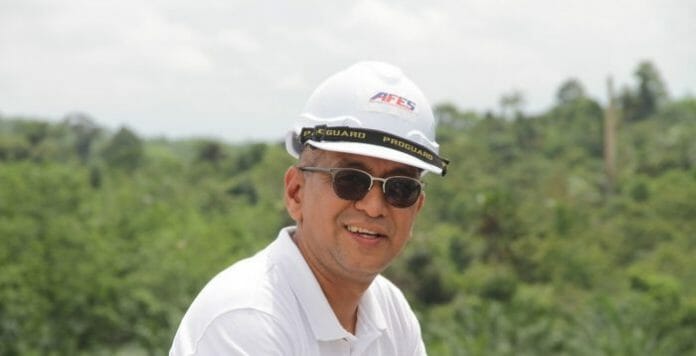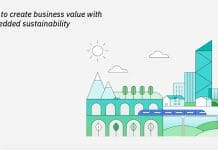According to the Ministry of Housing and Local Government (KPKT) in Malaysia, around RM430 million has been spent on closing just 17 out of 165 existing dumpsites and promoting the disposal of solid waste to sanitary landfill.
At present, landfill seems to be the preferred solid waste management option for Malaysia, as waste infrastructure is still in its infancy.
Local authorities responsible for the management of solid waste are outsourcing the collection and disposal of solid waste to private companies.
This is where Alam Flora’s fully-owned subsidiary, Alam Flora Environmental Solutions (AFES) comes into play to offer environmental solutions with core business activities like Asset and Facilities Management (AFM), Infrastructure Cleansing and Waste Solutions (ICWS) and Waste Management Facility (WMF).
The methods above are sustainable developments which harnesses technological development and advancements that support the global goals introduced by the United Nations’ Sustainable Development Goals (SDG).
As part of their efforts, AFES was appointed to operate the 100.2 acres landfill, Belenggu Halt, on February 2017 and the landfill became one of the best sanitary landfills owned by KPKT at that time.
After commencing operation in June 2017, the main tasks for the landfill are to treat wastewater that can be harmlessly discharged to the rivers and also receive waste from the Temerloh district area which covers 100 to 130 tonnes of wastes per day.
“We were also tasked to make it a running and working landfill for only six months after we were appointed there. AFES’s efforts made Belenggu Halt a level four sanitary landfill which is the highest level we achieved,” AFES Chief Operating Officer (COO), Nazar Abdul Raof tells BusinessToday.
United States “Clean” Waste To Malaysian Shores
Two years ago, more than 180 countries agreed to ban hard-to-recycle plastic waste trade in an attempt to stop rich countries dumping trash in the developing world, where it often ends up polluting the local environment and the ocean.
The new restrictions, which come under the Basel Convention, a United Nations treaty that polices the trade in hazardous waste, came into force in January.
According to Reuters, signatory countries can now only trade plastic waste if it meets certain low-contamination criteria, which means it is clean, sorted and easy-to-recycle or if the exporting country gets prior consent from the importing country.
However, Malaysia has allowed in a container of plastic waste from the United States after finding that it held only clean, recyclable material, and did not after all violate a brand-new United Nations treaty banning trade in contaminated plastics.
“We can see this as an opportunity actually because of the plastic waste that is coming to Malaysia. Malaysia produces around 40 kilotonnes of waste every day so there are already locally-produced plastic waste there. AFES has no issues turning those US’ plastic waste to value but we want to focus on Malaysia’s waste first rather than the imported one,” Nazar shares with BusinessToday.
Sustainability and Awareness
A study made by the European Commission shows that the average European citizen generates around five tonnes of waste, of which only a limited share (39 percent for 2014 with a total waste production of 2.6 billion tonnes) is recycled. Much of the rest still ends up in landfills or incinerators.
However, the European Union (EU) are bucking up their strides for a better waste management in the region itself.
The EU has implemented Pay as You Throw (PAYT) which is a usage-pricing model for disposing of municipal solid waste. The users are charged a rate based on how much waste they present for collection to the municipality or local authority.
The PAYT programmes are an effective tool in increasing waste separation, recycling, and waste minimisation. The result is significant energy savings from transportation, increases in material recovery from recycling, and reduction in pollution from landfills and incinerators. Therefore, it reduces the load of landfills which AFES is very much aiming for.
“Hopefully, we do not have to resort to that and that is why we want to maximise the landfills as much as possible. Therefore, Belenggu Halt is a good start for our sustainable landfill initiative. As the Government welcomes us to run Belenggu Halt and we want to make this as a platform to promote a sustainable way to run a landfill,” Nazar says.
The waste management company has already initiated several sustainability efforts at Belenggu Halt which can increase the lifespan of the landfill, and importantly be an environmentally safe and sustainable landfill.
AFES has also aimed to increase the lifespan of the landfill for about up to 20 years as normal dumpsites can only be operated for at most ten years.
AFES has implemented the Black Soldier Fly (BSF) treatment option as it offers a solution for waste management while also providing a protein source to help alleviate the rising global demand for animal feed.
Additionally, it can be a fish meal production substitution for BSF larvae meal which can reduce global warming potential up to 30 percent.
Nazar adds that the BSF treatment is not just good for the environment, but it is also profitable at the same time as businesses would offer RM500 to RM600 per tonne of the treatment’s produce.
AFES is also conducting the landfill gas extraction in collaboration with local university, International Islamic University Malaysia (IIUM) and a leachate treatment plant with the capacity to treat 200 cubic metres per day of leachate water in the Belenggu Halt landfill.
“The environmental solutions game is supposed to be for the long run and not for the short term as we need to invest in it. In other countries, usually the government plays a bigger role in waste management but, here in Malaysia, public-private partnerships are the norm.
So, we want Malaysian leaders in the public and private sectors to seek the right partner in making this business happen. We want to focus on landfills like Belenggu Halt which can cover nearby low volume landfills like the one near Bentong as we put all of our investments and technology in the landfill for everyone to see,” Nazar concludes.











